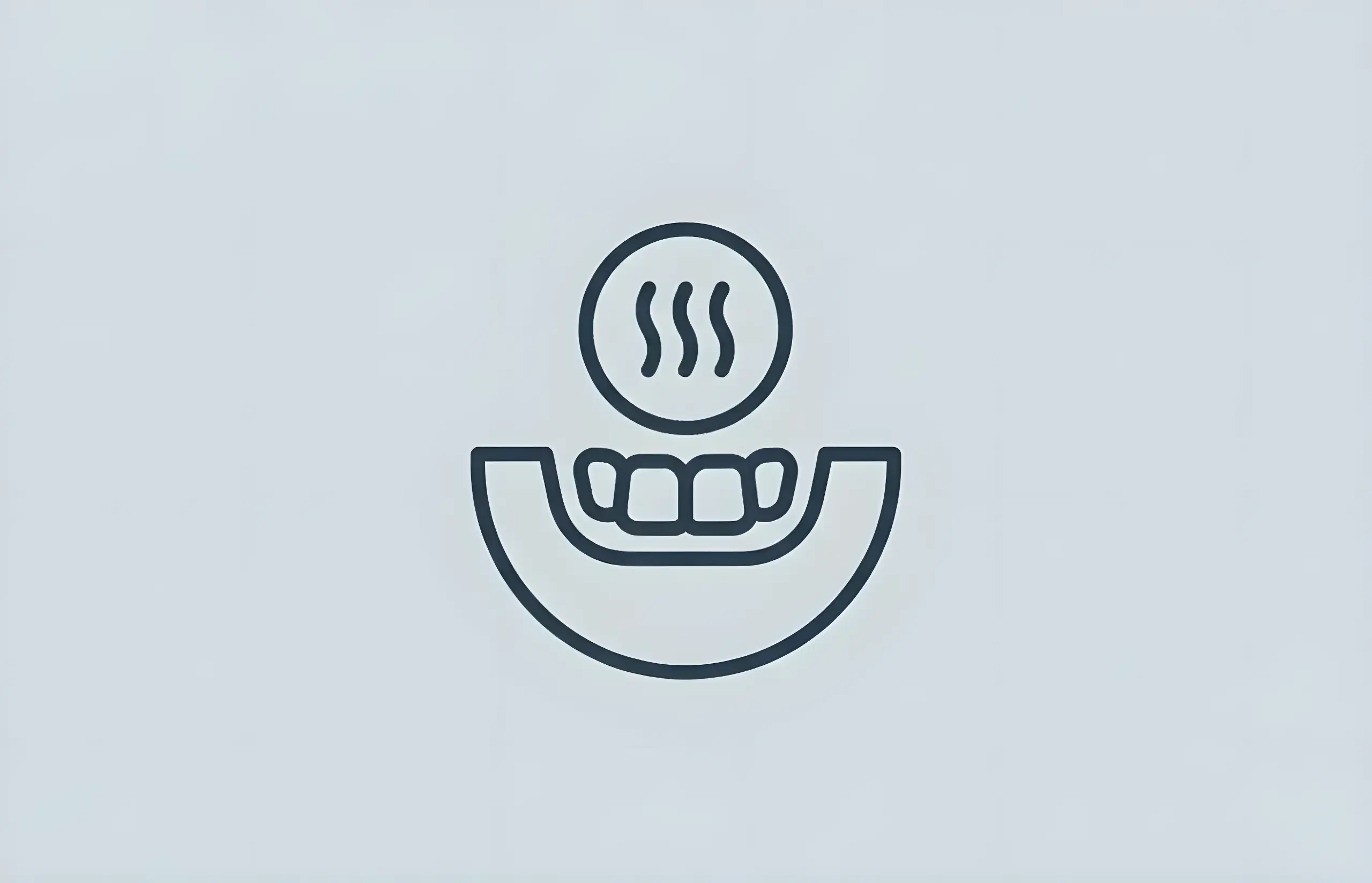Dentures are used to replace missing teeth and gums. They are custom-designed for your mouth and help improve your smile and confidence. This alternative also makes it possible to enjoy your meals.
However, sometimes these dentures prove troublesome. They cause pain, especially if they are new. In addition, you can experience pain from the dentures cutting into the gums or rubbing against them. There are also many reasons why your dentures are causing sore gums.
In case of discomfort, what should you do? First, let's dive into the details in this article.
Why are Your Dentures Cutting into Your Gums?
Here are some of the factors that result in denture discomfort.
An Ill Fit
While it is normal to experience some soreness when new dentures get fitted, you must not ignore the pain if it happens past the adjustment period.
If you are wearing dentures made from poor-quality materials, they will likely not fit well. Ill-fitting dentures rub against your gum's soft tissue, causing sores and pain.
The most unpleasant effect of poor-fitting dentures is the pressure on your soft tissue.
Bacterial Buildup
You can experience pain from bacterial buildup and trapped food bits under the dentures. While well-fitted dentures prevent most of this, there is still a chance of this happening. The chances increase with poorly-fitted dentures.
If dental hygiene is not carefully practiced, food particles can get trapped under your dentures. As a result, dentures can shift due to an ill fit or a misaligned bite. In addition, these trapped food bits contribute to a buildup of bacteria which can then develop into plaque.
As a result, your denture-covered gum line will suffer from inflammation, causing you pain and discomfort.
Bone Resorption
Simply put, bone resorption is the loss of bone mass. This is commonly observed in denture wearers. Dentures add constant pressure on the underlying bone and gums. This leads to inflammation and accelerated bone loss.
When you lose bone tissue, the structure of your gums gets altered, and your dentures do not fit properly. This results in discomfort and can cause the dentures to cut into your gums when you chew.
What to Do When Your Dentures are Cutting into Your Gums?
Dentures are meant to give you confidence. However, this confidence can be shaken if you are in pain from the very thing that is intended to provide you relief. What should you do to get relief from dentures that are cutting into your gums?
Maintain Oral Health
Maintaining oral health is vital in preventing and treating any dental problems. Proper care of dentures and teeth will ensure that no food bits get trapped, and bacteria do not get a chance to thrive.
If you use removable dentures, remove and clean them at least once a day to remove any food debris and wash away sticky bacteria. Use non-abrasive cleaners and soft toothbrushes since dentures are prone to damage.
In addition to cleaning your dentures, follow proper oral hygiene with your natural teeth. Brush and floss regularly to eliminate plaque and any stuck bits of food.
Home Remedies
You can also follow a few home remedies to relieve denture discomfort.
Salt Water Rinse. You can soothe inflamed gums with a regular salt water rinse. alt
OTC Pain Medication. You can ask your dentist for recommendations for some over-the-counter pain medication. They are likely to prescribe you some during your adjustment period.
Soft Food. Do not add pressure on your gums with hard and sticky foods. Chewing will become less irritating if your meal features soft foods while your gums recover, especially if your dentures are new.
Massage the Gums. After your oral hygiene routine, massage your gums gently to increase blood flow. This will help reduce the swelling and relieve the pain. You can also apply a hot compress against your jaw.
Take a Break. If your dentures are cutting into inflamed gums, give your gums a break. Remove your dentures before you turn in for the night and leave them submerged in a denture solution.
Get Professional Help
If none of the above remedies help, it is time to call the professionals. Do not ignore the pain. Letting the symptoms intensify will only make you more miserable.
You may need to get your dentures properly adjusted or relined by a professional. This process will ensure that you get fitted with proper-fitting dentures. However, if this fix does not work, it might be time to get new dentures.
The Final Word
Dentures are not always comfortable. However, there are easy treatments that relieve your pain and get you back to your healthy bite.
While new dentures take a while to get used to, you must not ignore any symptoms of pain and discomfort. Reach out to a professional if you are unsure how to proceed.
Sources and References
-
[1]
Management of Chronic Atrophic Candidiasis (Denture Stomatitis)—A Narrative ReviewInternational Journal of Molecular Sciences (PubMed Central)https://pmc.ncbi.nlm.nih.gov/articles/PMC9967389/
-
[2]
A case control study to investigate the effects of denture wear on residual alveolar ridge resorption in edentulous patientsJournal of Dentistryhttps://pubmed.ncbi.nlm.nih.gov/32389732/
-
[3]
Rinsing with Saline Promotes Human Gingival Fibroblast Wound Healing In VitroPLOS ONE (PubMed Central)https://pmc.ncbi.nlm.nih.gov/articles/PMC4956236/
-
[4]
Epidemiology and etiology of denture stomatitisJournal of Prosthodonticshttps://pubmed.ncbi.nlm.nih.gov/21463383/
- [5]
All sources accessed and verified on . Medical information reviewed for accuracy and compliance with current guidelines.
Related Articles

Can Dentures Be Fitted to Receding Gums?
Complete guide to fitting dentures with receding gums including causes of gum recession, types of dentures, benefits, precautions, and proper care for optimal results

Dentures – Costs & Information
Comprehensive guide to denture types, costs, quality of life outcomes, complications, and choosing between conventional dentures and implant-supported options

Flexible Partial Dentures
How Much Do They Cost in the UK? (100% Patient Preference, £600-£1,500 Range)

Can You Get Partial Dentures Without Metal Clasps?
Exploring metal-free alternatives to traditional partial dentures including flexible dentures, precision-fit options, and aesthetic solutions without visible metal clasps

What Should I Soak My Dentures in at Night?
Essential guide to denture care, proper overnight soaking solutions, and maintenance practices to preserve denture shape, cleanliness, and oral health
About The Dental Guide
The Dental Guide is a trusted online resource providing evidence-based information about dental health, treatments, and procedures. Our content is created and reviewed by qualified dental professionals to help you make informed decisions about your oral health.
Our Mission
- Evidence-based dental information
- Expert-reviewed content
- Clear, accessible explanations
- Latest treatment options
- Patient-focused guidance
Editorial Standards
- GDC-registered dental professionals
- Peer-reviewed sources
- Regular content updates
- Medical accuracy verification
- Transparent authorship
Important Notice
The information on The Dental Guide is for educational purposes only and should not replace professional dental advice. Always consult with a qualified dentist for diagnosis and treatment recommendations tailored to your individual needs and circumstances.
Medically Reviewed
Reviewed by Dr. Nasim Mechoui , BDS (Bristol)
Share this article
Comments & Discussion
Have questions about dental implants? Share your thoughts or experiences.
